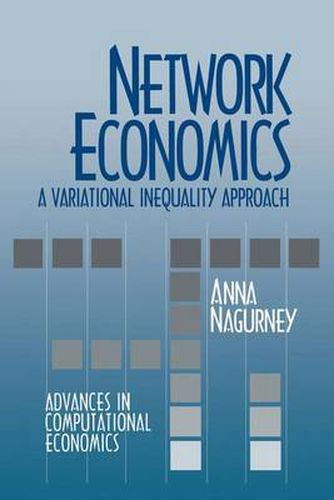Readings Newsletter
Become a Readings Member to make your shopping experience even easier.
Sign in or sign up for free!
You’re not far away from qualifying for FREE standard shipping within Australia
You’ve qualified for FREE standard shipping within Australia
The cart is loading…






This title is printed to order. This book may have been self-published. If so, we cannot guarantee the quality of the content. In the main most books will have gone through the editing process however some may not. We therefore suggest that you be aware of this before ordering this book. If in doubt check either the author or publisher’s details as we are unable to accept any returns unless they are faulty. Please contact us if you have any questions.
Computational economics has been at the forefront in stimulating the de velopment of mathematical methodologies for the analysis and solution of complex, large-scale problems. The past decade, in particular, has witnessed a dramatic growth of interest in this area. Supported by the increasing avail ability of data and advances in computer architectures, the scale and scope of problems that can now be handled are unveiling new horizons in both theoretical modeling and policy analysis. Accompanying the activity in computational economics is a need for the unification, documentation, and presentation of fundamental methodologies for use by both researchers and practitioners. This volume aims to make a contribution in this direction. The focus of this book is on network economics. Physical networks are pervasive in today’s society, be they in the form of transportation networks, telecommunication networks, energy pipelines, electric power networks, etc. Mathematical networks, on the other hand, may be used to represent not only physical networks but also interactions among economic agents. In many applications, the network representation of an economic equilibrium problem may be abstract in that the nodes of the network need not corre spond to locations in space and the links of the network to trade or travel routes.
$9.00 standard shipping within Australia
FREE standard shipping within Australia for orders over $100.00
Express & International shipping calculated at checkout
This title is printed to order. This book may have been self-published. If so, we cannot guarantee the quality of the content. In the main most books will have gone through the editing process however some may not. We therefore suggest that you be aware of this before ordering this book. If in doubt check either the author or publisher’s details as we are unable to accept any returns unless they are faulty. Please contact us if you have any questions.
Computational economics has been at the forefront in stimulating the de velopment of mathematical methodologies for the analysis and solution of complex, large-scale problems. The past decade, in particular, has witnessed a dramatic growth of interest in this area. Supported by the increasing avail ability of data and advances in computer architectures, the scale and scope of problems that can now be handled are unveiling new horizons in both theoretical modeling and policy analysis. Accompanying the activity in computational economics is a need for the unification, documentation, and presentation of fundamental methodologies for use by both researchers and practitioners. This volume aims to make a contribution in this direction. The focus of this book is on network economics. Physical networks are pervasive in today’s society, be they in the form of transportation networks, telecommunication networks, energy pipelines, electric power networks, etc. Mathematical networks, on the other hand, may be used to represent not only physical networks but also interactions among economic agents. In many applications, the network representation of an economic equilibrium problem may be abstract in that the nodes of the network need not corre spond to locations in space and the links of the network to trade or travel routes.